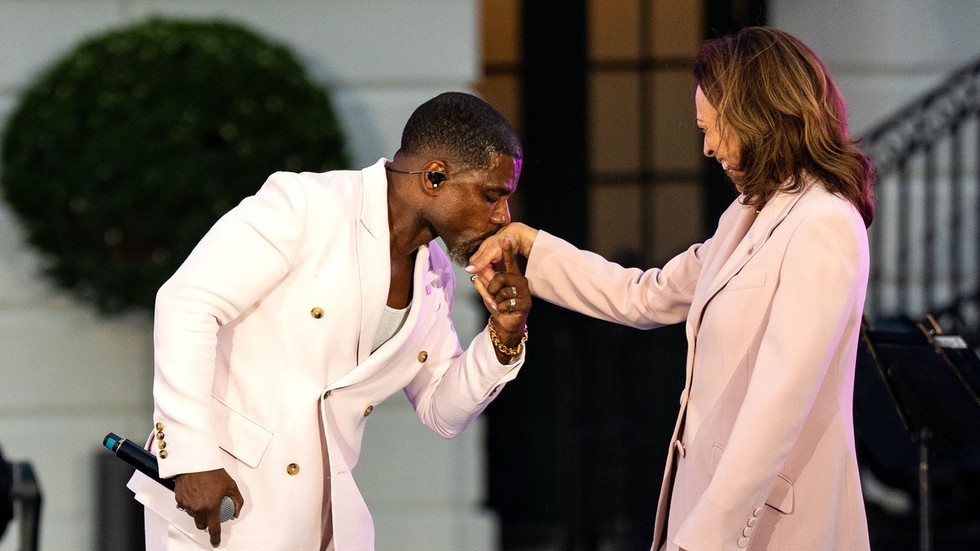In a recent episode of Joe Rogan’s podcast, tech billionaire Elon Musk discussed the political climate within the U.S. entertainment industry, particularly regarding the support for Vice President Kamala Harris in the upcoming presidential election. Musk suggested that many celebrities, including those who have historically remained apolitical, are backing Harris out of fear for their job security. He characterized this phenomenon as not merely a matter of personal political conviction, but rather as an implicit pressure exerted by powerful figures within Hollywood. Musk’s perspective highlights a culture of conformity in which celebrities feel compelled to align with the Democratic nominee to avoid potential repercussions in their careers.
Musk elaborated on the dynamics at play, indicating that Hollywood’s powerful elite can subtly encourage endorsements for Democratic candidates like Harris. According to him, these influential individuals don’t need to issue overt threats; the unstated understanding is that failure to comply can jeopardize an actor or musician’s future opportunities in the industry. Musk’s claims about the coercive atmosphere in Hollywood suggest that professional relationships are steeped in a political environment where dissenting voices can be silenced through the fear of isolation or ostracism.
Rogan echoed Musk’s observations during the podcast, finding the phenomenon of celebrity endorsements curious. He suggested that many in the entertainment industry assume backing Harris might improve their prospects for future roles or projects. However, Musk presented a contrary viewpoint: the pressure to conform to the prevailing political ideology in Hollywood may, in fact, endanger those who do not conform. The narrative Musk presented serves to illustrate how political affiliation can have tangible consequences on an individual’s career trajectory within the entertainment industry.
The discussion also underscored a notable shift in Hollywood’s political landscape over recent years. Rogan pointed out that during the Obama administration, high-profile Republicans like Clint Eastwood could express their political beliefs without severe repercussions. The landscape of tolerance for diverse political opinions has evidently diminished since former President Donald Trump took office. Musk contended that Trump became a focal point of animosity in the political sphere, leading to an environment where dissent against his presidency could result in backlash against individuals and their careers. This indicates a dramatic transformation in how political affiliations are navigated in the world of entertainment.
Musk, who is a supporter of Trump and is reportedly eyeing a position in a future Republican administration, highlighted how the current political climate has cultivated a culture of fear and conformity. He illustrated the stark contrast between the openness to diverse political views in the past and the current state of Hollywood, where many celebrities readily endorse Democratic candidates. High-profile figures such as Taylor Swift, Lady Gaga, Rihanna, and Jennifer Lopez have publicly supported Harris, reflecting a collective inclination among entertainers that may be influenced more by the threat of career repercussions than by genuine political belief.
As the podcast concluded, Musk’s insights illuminated the uneasy intersection of politics and the entertainment industry. His critique of the pervasive pressure to conform to a singular political ideology raises critical questions about freedom of expression and the consequences of dissent in a historically liberal sphere. The conversation posited that while celebrity endorsements can significantly influence an election’s outcome, the motivations behind these endorsements may be riddled with fear rather than genuine political alignment, leaving a layered impact on both the individuals involved and the broader cultural discourse.

